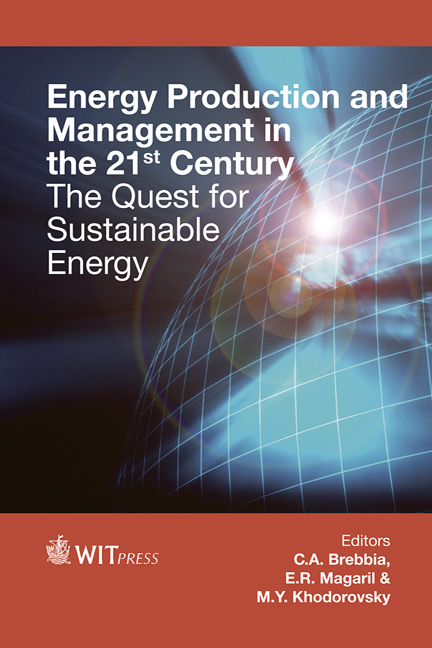An Assessment Of The Potential And Optimal Method For Biowaste Energy Production In Latvia
Price
Free (open access)
Transaction
Volume
190
Pages
11
Page Range
1067 - 1077
Published
2014
Size
436 kb
Paper DOI
10.2495/EQ141002
Copyright
WIT Press
Author(s)
J. Pubule & D. Blumberga
Abstract
The European Union has set targets to minimise the deposited amount of biodegradable waste in landfills. European countries have to comply with the Landfill Directive and the Waste Directive to reduce landfilling of the biodegradable part of MSW to 35% within the next five to ten years. They also have to comply with the Renewable Energy Directive. According to the IPCC Guidelines for National GHG Inventories, the percentage of biowaste as a total of MSW composition is about 30% in Eastern Europe. However, in Latvia, the assessed composition of waste varies greatly in different sources, and the biowaste fraction varies from 28% up to 58%. In order to promote the development of renewable energy sources, the potential amount of biowaste must be assessed and, based on that, the optimal transformation into an energy method has to be found. This paper presents an analysis of the possibilities to utilize biowaste for biogas production in Latvia, including biogas production from landfill gas and biogas production from biowaste by the method of anaerobic digestion. The analysis is based on a selection of criteria and methodology for the optimization of biowaste management and biogas production from biowaste, as well as on preliminary environmental impact assessments and cost-benefit analyses. The first results have shown that the optimal method for biowaste treatment and biogas production from biowaste in Latvia is anaerobic digestion. This optimization depends on certain conditions, e.g. distance from waste source to biogas production plant, energy potential of biowaste, efficiency of separate waste collection etc. The optimization target function includes engineering, environmental, and economical parameters, which are applied to foresee the potential of biogas production. Keywords: bio-waste, renewable energy, impact assessment, energy output, Latvia.
Keywords
bio-waste, renewable energy, impact assessment, energy output, Latvia.





